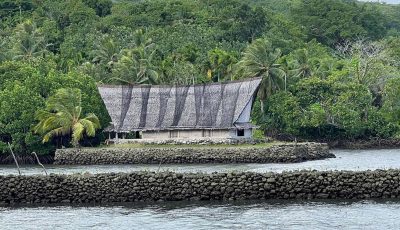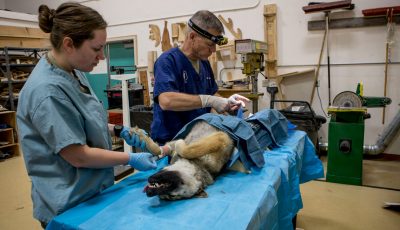Addressing slow health progress across Pacific
AUCKLAND, New Zealand—The Pacific is struggling to confront a widening gap with the rest of the world in terms of progressing health despite overall improvement across the region.
This was a clear message by Pacific Community Director General Dr. Colin Tukuitonga, to regional health professionals while delivering his keynote address at the Pasifika Medical Association 20th Anniversary Conference in Auckland, New Zealand, yesterday.
“If we draw attention to life expectancy, many countries in our region are displaying continued improvement. On the same note, a number of Pacific Island countries have experienced plateau over the last 20 years with no sustained improvement in life expectancy and this is cause for serious concern,” Tukuitonga said.
“This has been the case in one of the larger Pacific Island countries for approximately 25 years for instance. Life expectancy for males and females have plateaued at 64 years and 69 years respectively due to premature adult mortality which is likely a result of the devastating impact of non-communicable diseases. In another Pacific country the figures are even more alarming with males expected to live to their mid-fifties and females around 60 years old,” Tukuitonga added.
Referring to the 2014 Mortality Trends in Pacific Island States report produced by the Pacific Community (SPC), Tukuitonga noted that infant mortality as well as under five mortality in the region have also registered commendable improvement with most Pacific Island countries displaying a consistent decline.
However, the report also revealed instances of infant mortality rates and under five mortality rates at unacceptable levels compared to expected norms, with countries such as Papua New Guinea and Kiribati recording greater than 40 deaths per 1000 live births despite a consistent downward trend.
“We’re making strides but if we are to achieve our healthy islands vision for the Pacific, we need strong leadership, accountability and investment. We also cannot ignore the basics which are essential for healthy and productive communities such as access to clean water which is still a problem for many small Pacific Island countries and territories,” Tukuitonga said.
“It is also critical for us as health professionals to draw from each other’s expertise and experiences and work together to improve the health and wellbeing of people in our region and I commend the Pasifika Medical Association for facilitating this space.
“The association is positioned to build leadership and strengthen public health capacity, encourage reporting and accountability which are vital for informing and strengthening health policies and strategies and can play an important role in supporting health advocacy across the Pacific,” he said.
The Pasifika Medical Association is a network of more than 800 Pacific health professionals that are working collaboratively to strengthen Pacific health workforce capacity and capability as well as meet the health needs of Pacific people in the region. (PR)



























